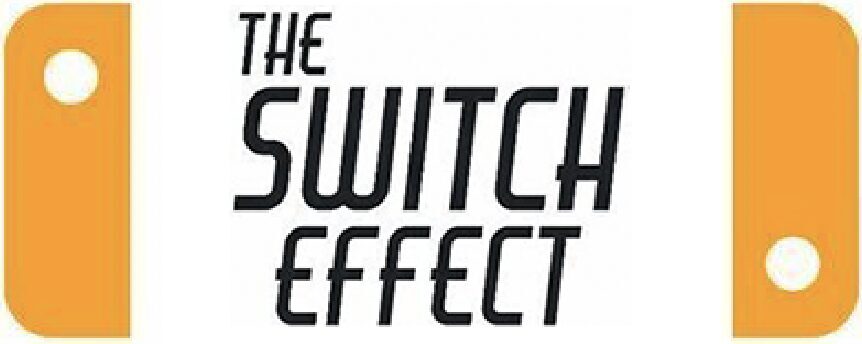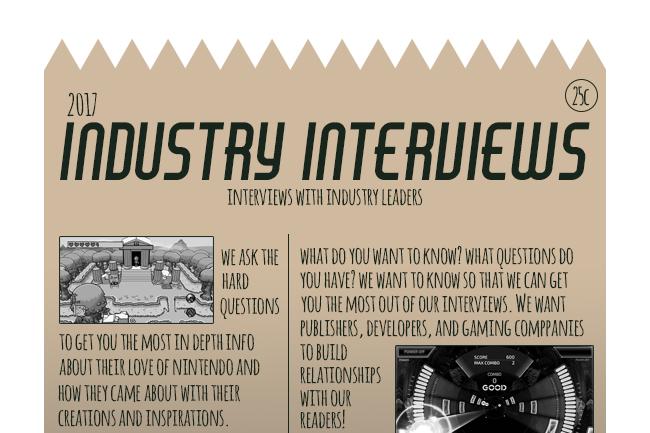[Industry Interviews] Adam Creighton from Panic Button

Joining The Switch Effect on today’s Industry Interview is Panic Button. Founded in 2007, Panic Button is a video game studio that has a solid history as an agile game developer specializing in co-development, ports, full game production, and original IP. Recently, Panic Button worked with id Software and Psyonix to bring DOOM and Rocket League, respectively, to the Nintendo Switch. Earlier this year, the studio released their first published title, Astro Duel Deluxe, on the console. With all these amazing titles headed to the Switch, we thought it would be a great opportunity for our readers to learn more about this company.
Before we get into it, could you tell us a little bit about yourself and how you got involved with the gaming industry?
I’m Adam Creighton, the Studio GM and Director of Development for Panic Button, and one of the owners of the studio. I’m a lifetime gamer, and I wanted to contribute to the things I enjoy, so years ago, I looked for a way to make that happen. I started out in voice acting, and then moved into the game industry working as a technical product manager for game engines, a producer on titles, and now studio head for Panic Button.
As I stated earlier, Panic Button provides a wide variety of services. Can you share the background of your company, its vision, and what led to collaborating with indie and major developers within the industry?
Panic Button is centered on making good games with good people, and that philosophy drives our business. Whether working on our games or games belonging to partners, or making tools for other developers to make games, we want whatever we touch to be better because Panic Button is involved. For us, that has to be working with genuinely good people – people that are talented, and have good character. That applies to our employees, contractors, partners, developers, and clients. We have a very defined plan for growing the quality and caliber of our titles and the people we work with over the years, and that drives our business and our business relationships.
You’ve worked with a lot of studios, including Psyonix, Disney Interactive, Zynga, and BioWare to name a few. How has that experience been and can you describe the process that goes into determining who to work with?
Going back to our values and vision driving our business, we want to contribute meaningfully and visibly to quality products. We look for high visibility projects we can make better if we’re involved, and with partners who are excited to publicly tell people about how Panic Button is part of their success.
A good example of that is Marty Stratton and Hugo Martin from id Software giving a generous shout out to Panic Button in the DOOM release date announcement video from Nintendo.
Shout Out to Panic Button!
As a follow-up, Panic Button has helped to release games on multiple consoles/platforms. Is there a learning curve with each new iteration of gaming platform?
There are definitely a lot of new things to learn for each new generation of hardware! Technology advances, development techniques change, programming languages evolve, hardware changes and add new gameplay opportunities with things like motion controls, 3D cameras, augmented, virtual, & mixed reality, and more.
It’s a lot of moving pieces, and while some tools and processes stay the same from one console generation to the next, those have to change based on special features of the hardware, or changes in the company making the hardware or development tools, or other factors.
At Panic Button, we genuinely like that change and challenge – It lets us build up expertise and relationships with hardware companies across multiple generations, and helps us build on our intuition for what platform owners and gamers who own those platforms want in games for those consoles.
With the rise of digital games, it may seem to some that the physical format may go the wayside in the future. However, we at The Switch Effect love being able to walk into a store and hold a case of a new game. As a studio that has had their releases published in both formats, what is the consensus among your colleagues of how they prefer their games?
I think it’s complicated, depends on the game, and depends on the local market. Digital games are convenient and they’re always on the device (or they can be hopefully be re-downloaded). For sellers, they don’t have to compete as much with physical shelf space, there is a reduced cost of goods, and not as much of a problem with having enough product.
Digital games take up digital storage space (which is even more of a problem with expensive proprietary storage cards), can be hard to migrate from storage types, and discoverability – people finding these great games – can be a real challenge. Physical games are portable, transfer from system to system more easily, and sometimes scratch a collector’s itch. As games get bigger and fatter, downloading is definitely an issue, especially in countries that have metered or restricted bandwidth. So that physical distribution can have a very practical benefit.
Physical games have shorter development cycles to account for manufacturing, can cause supply issues, and sometimes end up with a digital patch as big or bigger than the original game. Selfishly, I enjoy walking into a store, seeing a game I worked on sitting on a shelf, and knowing my hard-working team – and a bunch of other hard-working people – made that happen.
How do you see your company growing in the coming years as new technology continues to push the boundaries of what can be done with games?
At Panic Button, we work to keep ourselves out in front of changing technologies, keep tabs on the state of the art, work with hardware manufacturers to get early access to future hardware, and in some cases make development tools for upcoming hardware. We’re gamers, so we play a lot of games, we look at what developers are doing, we figure out how they’re doing it, and we talk to our colleagues about what they’re doing and why and how.
Let’s talk briefly about the Nintendo Switch! What are your thoughts on Nintendo’s newest console?
I’m a big fan of the Nintendo Switch hardware. Being able to take Nintendo hardware anywhere I go, play top-tier games, and dock it for a big-screen experience is pretty great. I’m grateful companies like Nintendo are innovating in the video game hardware space, and executing so well on it.
Were there any challenges in working with the the console for DOOM, Rocket League, and your upcoming Astro Duel Deluxe?
With games like Astro Duel Deluxe, we worked with developer Rusty Moyher to create a version of the game special for hardware, and matched with core values of the audience for the hardware, so we created an up-to-six-person game, added new pilots, and made gameplay modes that are fun in all modes (TV, handheld, and tabletop), and we internationalized and localized the game to reach new audiences.
For games like Rocket League and DOOM, these are games that were created before the Nintendo Switch was announced, so decisions about other hardware might not make sense for hardware that didn’t exist at the time. Part of the magic of what Panic Button does is making games work with different CPUs, GPUs, available memory, different memory management, shader models, controls and other things than what the games were originally designed. People in the industry who do this kind of work know re-targeting games for new hardware is incredibly challenging.
Can you explain your involvement with Doom and Rocket League for the Nintendo Switch?
We talked to Bethesda and id Software in late 2016 about a number of things we could do together, and DOOM was one of those things that resonated with everyone involved. We started working on DOOM a few months into this year, and launched in the same year. That’s not a small thing.
For Rocket League, I met those Psyonix folks a couple days after they launched Rocket League on PS4 and PC in 2015, and we really liked the people at that studio, and that game. Panic Button did the Xbox One and PS4 Pro versions, some other things with them, and now we’ve done the Nintendo Switch platform version. This is a fun evolution of Panic Button’s involvement with Psyonix’s fantastic game.
Speaking of Astro Duel Deluxe, the game’s trailer feels like a love letter to the era of Atari. Where did the inspiration come from to not only create a retro feel game, but to also have this be your first published title?
Astro Duel Deluxe is a great title from independent developer Rusty Moyher of Wild Rooster. It is intentionally built as a love letter of sorts, for everything from Asteroids to Super Bomberman to NBA Jam. We were already planning to add digital distribution publishing to Panic Button’s portfolio, and I was looking for titles that made sense. I met Rusty at GDC this year, we got along great, he had a precursor to Astro Duel Deluxe that I played and liked, and we talked about making something special for Nintendo Switch gamers.
We added new features, ported, and published this game in less than three months, in the launch window for the hardware. We are very proud of this title, and for a lot of Nintendo Switch owners, Astro Duel Deluxe is their go-to party game. For our publishing, we look for titles and opportunities we are in a unique place to create. We bring games – or games to platforms, or games to gamers, or all of those things – that wouldn’t get that chance if Panic Button wasn’t involved.
Where can our readers follow Panic Button to be kept in the loop of all future updates?
You can follow us on our company Twitter, Facebook, and Instagram accounts, and members of our staff are also active on social media. You also find a fair number of us in attendance and contributing to industry events throughout the year and around the world.
Finally, is there anything else you’d like to share?
We’re gamers, and fans of games and gaming. We do these things we do because we really enjoy this stuff, and we care about this industry. We work hard to make sure our work is great, and we have a lot more coming, so thank you to those folks who have been such active, vocal supporters.
Thank you so much for taking the time to speak with us. We look forward to your future releases and seeing where Panic Button heads to in 2018.
Thank you for reaching out to us and best of luck to The Switch Effect team!
Doom, Rocket League, and Astro Duel Deluxe are all available on the eShop today! Make sure to pick up a copy and start playing with a friend!
Use the links below to follow Panic Button!



![]()


